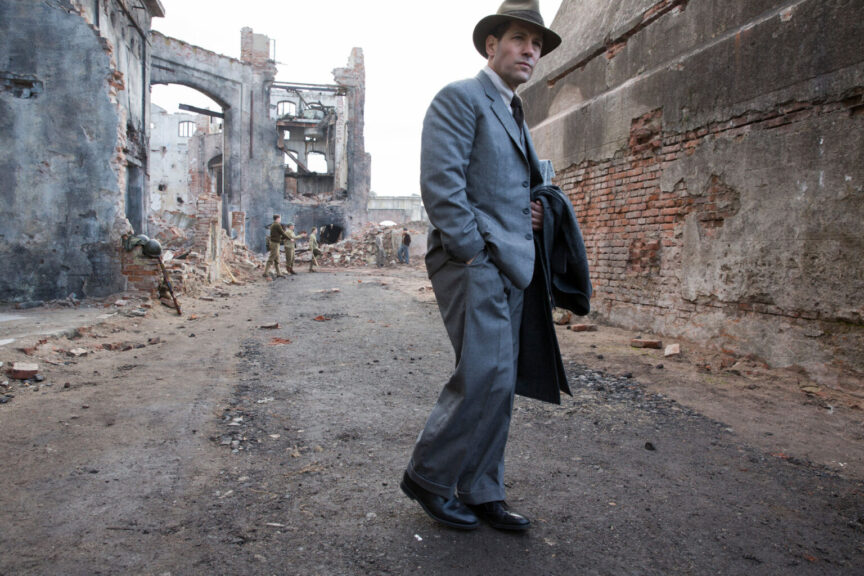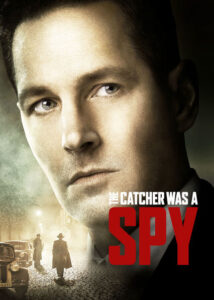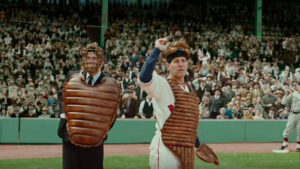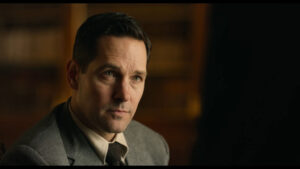Directed by Ben Lewin | Written by Robert Rodat, based on the book by Nicholas Dawidoff | 98 min | Netflix
Fans of Paul Rudd, and I know there are many, shouldn’t miss this oddity in his catalogue: the time where he played a real life Red Sox catcher Morris “Moe” Berg (not the Pursuit of Happiness frontman).
Moe is well-educated, speaks seven languages, and is closeted. “I’m good at keeping secrets,” he says in his job interview with Bill Donovan (Jeff Daniels), a Yale grad and also a former sportsman, who becomes his boss.
This is a thoughtful, somewhat anachronistic Second World War spy thriller that gives Rudd a chance to cut a more serious, leading man tone, with a terrific haircut and convincingly accented Japanese, German, and Italian — best as I can tell. More a character study than a thriller, it’s still connects on enough fronts to get on base.
We meet Berg on an important mission to Zurich, tracking a physicist named Heisenberg (Mark Strong). We then flash back to Fenway Park. It’s not entirely clear how someone who studied at the Sorbonne ended up behind home plate, but its not one of the things this movie is particularly interested in. His unresolved bisexuality is also served up early, but not pursued. There’s rich ground here we could’ve spent more time digging in to.
And yet, as it cleaves toward the spy thriller genre tropes, the movie puts Rudd in a Jeep with Guy Pearce and Paul Giamatti driving through war-torn Italy, which can’t be a bad thing. It gives blink-and-you’ll-miss-them roles to Shea Whigham, Hiroyuki Sanada, Giancarlo Giannini, Tom Wilkinson, and Connie Neilsen, with Sienna Miller earning a few more lines as Berg’s stateside lover, Estella.
The Catcher Was A Spy also asks us to weigh whether Berg has the chill in his soul to kill a man he admires, for the greater good. This isn’t something that conjures much in the way of suspense, largely because Rudd exudes a nice-guy charm, even when playing a part like this, that undercuts the plausibility of his being a killer — as we all discovered in Duncan Jones’ Mute.
But as the pieces of the plot click together, understated and functional as they are, the story is well-enough told. One of the rarest remarks I tend to make about a feature film applies here: It might’ve been a richer experience if it was longer. Just 20 more minutes to flesh out a few of the abandoned subplots would’ve been welcome.











